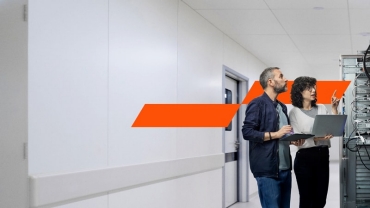
Do you believe in the power of 5G to transform the way we live, work and do business? You’re in good company, as excitement about the technology’s potential for allowing devices to connect at entirely new levels of speed and flexibility is widespread. But beware the hype: it’s good to have a more differentiated and realistic idea about possible applications of the technology. Above all, it’s absolutely vital to build security and trust into 5G systems in general – in particular into systems used for applications involving sensitive data. Our new white paper explains why and how.
What sort of applications are we talking about here? Some of the most exciting possible global use cases are in areas such as Fourth Industrial Revolution (4IR) infrastructures, smart cities, autonomous vehicles, remote surgery and telemedicine, and new, more powerful artificial intelligence systems.
Likely 5G use cases in Switzerland
What about potential applications closer to home? With 5G coverage already 90% at the time of writing, Switzerland appears to have the affinity with technology required for 5G solutions to be viable and accepted. But which economic sectors are most likely to benefit?
What Switzerland lacks in heavy industry it makes up for in high-value-added, precision manufacturing. Medical technology springs to mind. This is an area predestined for the extremely sophisticated automation enabled by 5G. Other likely fields of application in this country include other areas of healthcare (for example telemedicine, remote surgery and the Internet of Medical Things), logistics (including production and delivery tracking, possibly combined with drones), and critical infrastructure.
Use cases with a lot at stake
Many of these potential applications involve sensitive personal data. It’s not just about the inconvenience or embarrassment of deliveries arriving at the wrong address or personal data being disclosed. In areas like telemedicine or power supply, security breaches can have potentially fatal consequences. It’s therefore crucial to build security and trust in-to 5G systems right from the outset.
Cybersecurity is up to the challenge – but only if it’s built in from the start
Given the complexity of the technology – and especially the way it connects countless independent devices, many of them mobile and potentially vulnerable − this is no easy undertaking. Luckily, the latest cybersecurity approaches are evolving in line with the nature of the systems and the threats. A good example is the zero trust approach. It starts with understanding where vulnerabilities might arise, and then determining how devices are to be given access on the basis of their need and security health.
The technology exists to create trustworthy 5G systems. What’s needed is the intelligence, foresight and knowledge to build in trust from the very outset. Are you ready to capitalise on 5G? Find out in our white paper.










